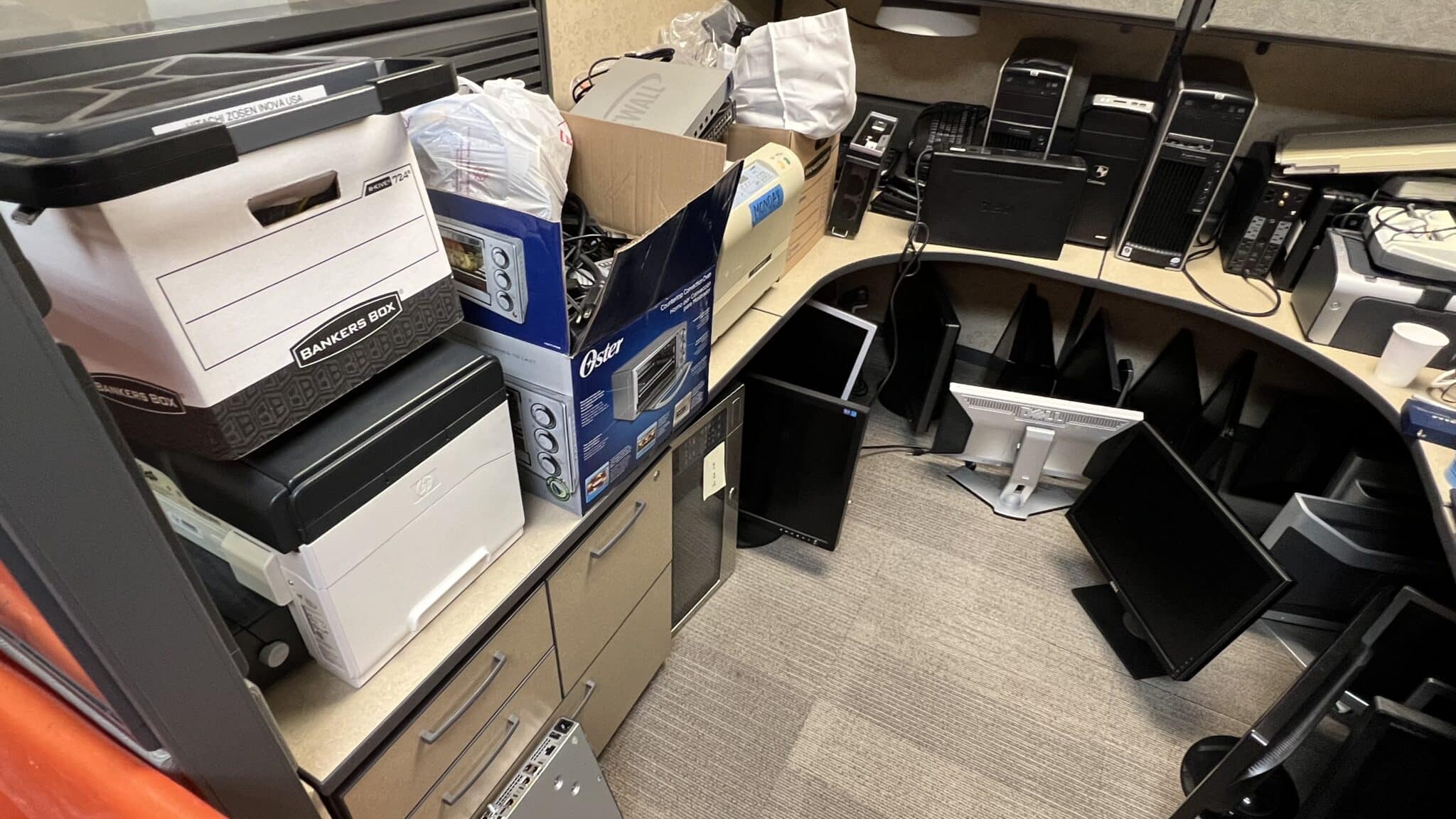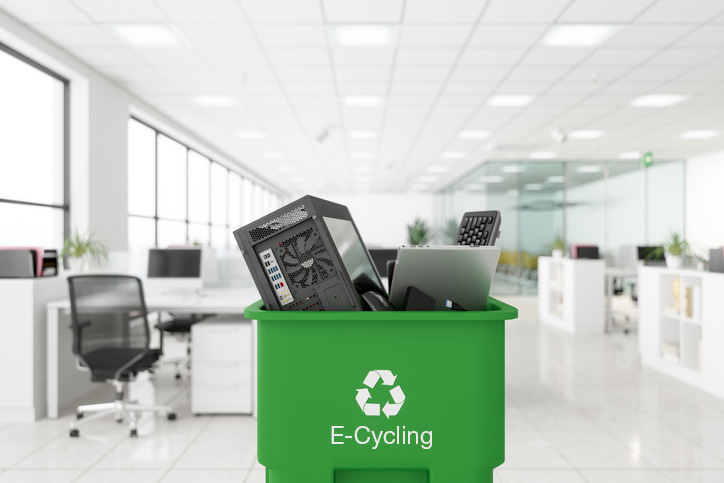Changing E-Waste: Computer Recycling Done Right
Changing E-Waste: Computer Recycling Done Right
Blog Article
Sustainable IT Solutions: Trustworthy Computer System Recycling Solutions
As technology remains to progress at a quick pace, the concern of electronic waste, or e-waste, has come to be a pressing issue for both people and companies alike. The incorrect disposal of computer systems and various other electronic devices not only adds to environmental deterioration, yet likewise postures substantial risks to human health. Due to this, the demand for trustworthy computer system recycling services has never ever been more critical. In this conversation, we will discover the environmental influence of e-waste, the advantages of liable computer recycling, how to pick a trustworthy recycling service, the recycling procedure for computers and electronic devices, and the role of federal government guidelines in e-waste management. Join us as we discover the lasting IT remedies that can help us navigate the complexities of digital waste in a responsible and dependable way.
The Environmental Effect of E-Waste
The inappropriate disposal of digital waste, frequently called e-waste, has considerable environmental effects. E-waste refers to thrown out electronic devices such as tvs, computers, and smart devices (computer recycling). These tools include hazardous products such as lead, mercury, cadmium, and brominated flame resistants, which can be damaging to both human health and the setting if not correctly managed
When e-waste is incorrectly gotten rid of, it often ends up in land fills or is incinerated, launching harmful materials into the soil, air, and water. The launch of these unsafe materials can pollute groundwater, pollute the air, and contribute to soil deterioration, positioning severe health and wellness threats to close-by communities and communities.
Moreover, the improper disposal of e-waste also adds to the depletion of natural deposits. computer recycling. Several electronic gadgets have valuable metals like gold, silver, and copper that can be recouped and recycled if effectively recycled. Nonetheless, when e-waste is not reused, these beneficial resources are lost, and the demand for new raw materials boosts, causing raised mining activities and further environmental deterioration.
To mitigate the environmental impact of e-waste, proper recycling and disposal approaches need to be utilized. This consists of the liable collection, dismantling, and recycling of digital gadgets to recoup beneficial products and make sure the risk-free administration of dangerous materials. Implementing reliable e-waste administration methods is crucial to protect the setting, save sources, and advertise a sustainable future.

Benefits of Responsible Computer Recycling
Correctly recycling computer systems provides a plethora of benefits, including ecological preservation and resource conservation. Liable computer reusing not just assists stop digital waste from ending up in landfills, yet it also reduces the need for basic materials and energy in the production of brand-new gadgets.
One of one of the most substantial advantages of accountable computer system recycling is the preservation of the setting. When electronic waste is poorly taken care of, it can release unsafe compounds such as lead, mercury, and cadmium right into the soil and water, presenting a hazard to environments and human health and wellness. By reusing computer systems, these hazardous products can be safely drawn out and disposed of, lessening the threat of contamination.
An additional benefit is resource conservation. Computer systems include useful products like gold, copper, silver, and light weight aluminum, which can be recouped and recycled through reusing procedures. By extracting and reusing these materials, the need for extracting brand-new resources is decreased, preserving natural resources and minimizing the environmental influence of source extraction.
Furthermore, accountable computer system reusing aids to decrease energy intake. Manufacturing brand-new computers requires a substantial quantity of power, from the removal of basic materials to the setting up procedure. By reusing computer systems and reusing their elements, the energy-intensive manufacturing process can be prevented, resulting in a decrease in greenhouse gas discharges and a much more lasting use of power sources.
Just How to Choose a Trustworthy Computer Recycling Solution
When choosing a computer system recycling solution, it is essential to take into consideration a couple of vital variables to make certain that you select a trustworthy and trustworthy provider. It is important to confirm if the recycling service adheres to appropriate environmental regulations and techniques. A reliable provider will certainly have qualifications and accreditations that show their commitment to accountable recycling. Seek qualifications such as R2 (Responsible Recycling) or e-Stewards, which make sure that the reusing procedure meets rigorous standards for environmental management and data safety. Secondly, examine if the service uses protected information destruction. Data safety is an important concern when recycling computers, as sensitive info saved on old gadgets can be at risk to theft or misuse. A reliable recycling solution need to have protected information devastation procedures in area, such as data wiping or physical damage of storage space tools. Additionally, think about the service's track record and online reputation. Look for testimonials or endorsements from previous clients to assess their level of customer satisfaction and dependability. Last but not least, consider the service's openness and liability. A reliable company needs to be able to offer in-depth details about their recycling process, including exactly how they handle hazardous materials and make sure proper disposal. By thinking about these elements, you can select a computer reusing service that is ethical, reliable, and ecologically responsible.
The Recycling Refine for Computers and Electronic Gadgets
To guarantee responsible disposal and lessen environmental impact, recognizing the reusing process for computer systems and digital devices is essential when choosing a credible recycling service. The recycling procedure for these tools typically involves a number of phases.
To start with, the devices are accumulated from individuals, companies, or drop-off points. This collection procedure may include transportation logistics and safe and secure managing to protect the delicate information included within the tools. Once gathered, the devices are sorted based on their type, such as smart devices, desktops, or laptops.
After arranging, the devices undergo a thorough data devastation process to ensure that any kind of delicate or individual information is completely gotten rid of. This action is critical to shield the privacy and protection of individuals and companies. Information damage methods may include wiping, degaussing, or physical destruction of the storage space media.
Following, the gadgets are dismantled right into their specific parts. This permits the separation of various materials, such as plastics, metals, and circuit boards. These materials are then sent to specialized recycling facilities for more processing.
The recycling facilities use various methods to draw out useful products from the digital waste. These products he said can be reused or repurposed in the manufacturing of new products. The remaining waste is dealt with in an ecologically accountable way, adhering to regulatory guidelines.
The Role of Government Regulations in E-Waste Administration
Federal government guidelines play a crucial duty in the efficient management of e-waste. With the continuous development of the electronic devices sector and the boosting problem for environmental sustainability, the demand for correct disposal and recycling of electronic waste has become extra evident. Federal government guidelines help to guarantee that e-waste is managed in a liable and sustainable fashion.
One of the key functions of government laws is to set standards and standards for e-waste administration. These policies specify the appropriate methods for collection, transport, and recycling of electronic waste. By developing these criteria, governments can make certain that e-waste is managed in a method that minimizes click for info its effect on the environment and human wellness.
This consists of implementing take-back programs, where producers are responsible for gathering and reusing electronic waste from consumers. These guidelines help to move the problem of e-waste monitoring from the specific customer to the sector, making certain that electronic waste is taken care of in a much more sustainable way.

Final Thought
In final thought, it is crucial to consider the environmental impact of e-waste and pick a trustworthy computer system recycling service to properly get rid of digital tools. By complying with federal government laws and participating in proper recycling processes, we can reduce the negative results of e-waste on the atmosphere and promote a more this article lasting future.
In this conversation, we will certainly discover the ecological effect of e-waste, the benefits of liable computer system recycling, just how to select a credible recycling service, the recycling procedure for computer systems and electronic tools, and the role of federal government guidelines in e-waste administration. Computers include valuable products like gold, copper, light weight aluminum, and silver, which can be recovered and recycled with reusing procedures.Moreover, responsible computer system recycling helps to reduce energy intake. Data safety and security is a critical worry when recycling computers, as sensitive information saved on old gadgets can be at risk to burglary or misuse. By considering these variables, you can select a computer reusing service that is moral, reputable, and ecologically liable.
Report this page